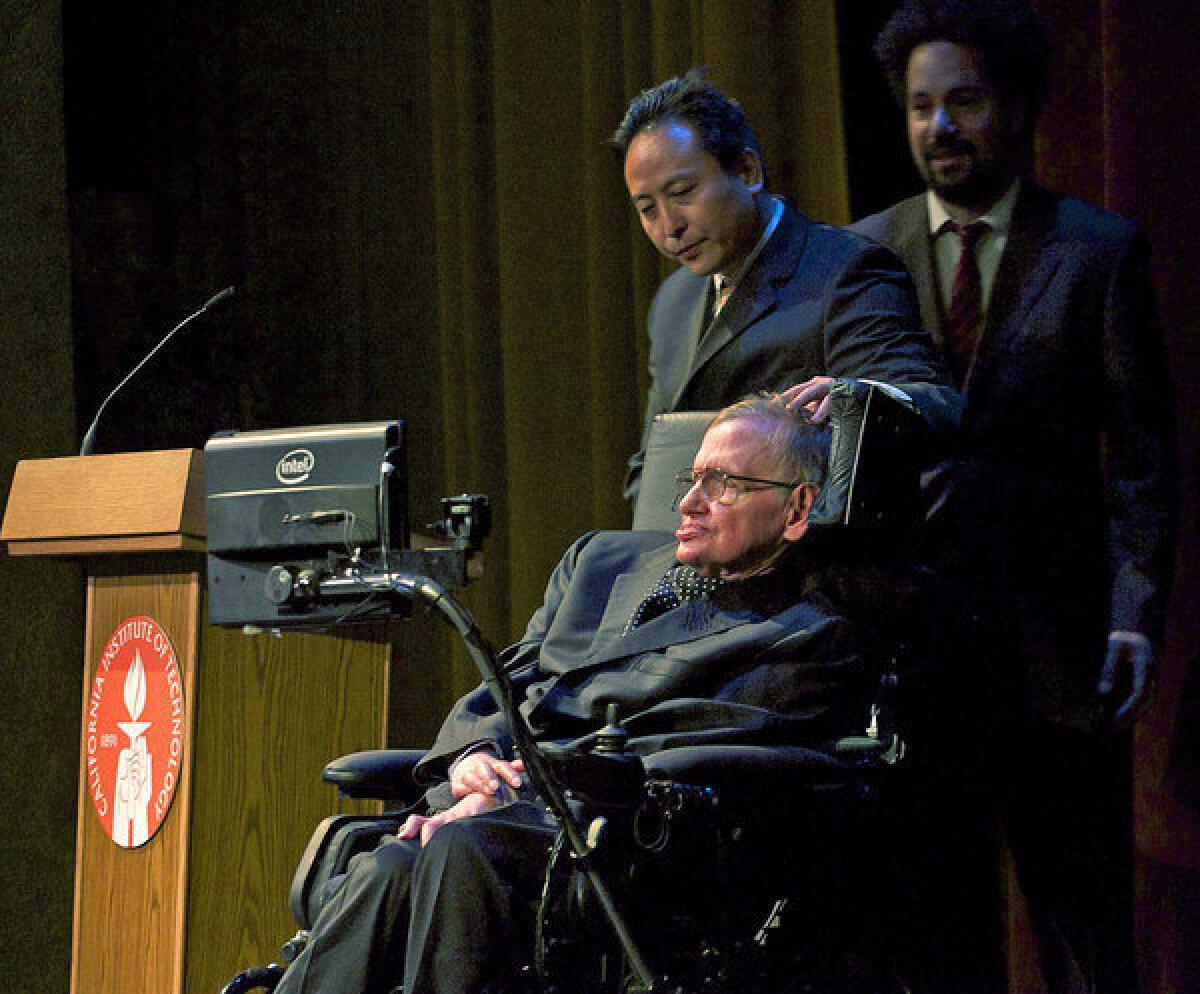Cosmology’s future lies with the dark side, Stephen Hawking says

- Share via
Want to discover the next big breakthrough in cosmology?
Turn to the dark side, says renowned theoretical physicist Stephen Hawking.
“The missing link in cosmology is the nature of dark matter and dark energy,” Hawking said Tuesday night at Caltech, where he lectured on the origin of the universe.
Results from the European Space Agency’s Planck space telescope shows “that normal matter is only 5% of the energy density of the known universe; 27% is dark matter, 68% is dark energy,” he said.
Hawking is the author of “A Brief History of Time,” a book on the origin of the universe that has sold millions of copies. He made his name studying black holes, massive structures that anchor galaxies and which has gravity so strong that not even light can escape.
“There have been searches for dark matter, but so far no results,” he said.
A hunt for dark matter in a former gold mine
Dark matter is one of physics’ biggest riddles. It can’t be seen or felt directly, but scientists know it’s there because it helps hold spiral galaxies together. Dark energy, physicists believe, is why the universe is expanding at an ever-growing rate instead of collapsing under its own gravity.
During his talk, Hawking recapped his decades-long career in science, from his stumbles to his successes.
He said he thinks the future of understanding the universe lies in the Large Hadron Collider near Geneva. The recent discovery of the Higgs boson, also known as the “God particle,” was actually a disappointment for Hawking.
“Physics would be far more interesting if it wasn’t found,” he joked.
PHOTOS: Amazing pictures from space
Hawking also took aim at past and current cosmological theories. An old Russian theory that the universe collapsed because of gravity and essentially “bounced” into the expansion we see today was simply an “article of faith” by Marxists, Hawking said.
He said UC Santa Barbara theoretical physicist Joseph Polchinski’s theory of a firewall at a black hole’s event horizon – the point where the gravity of the black hole wins out and pulls matter toward it – is wrong. So is a theory that black holes could essentially be a trap door to an alternate universe, where the matter sucked into the black hole is spit out into another universe like a Big Bang.
In the grand scheme of things, man’s existence is the result of a game of chance, Hawking said. Based on the size of the universe and the matter within it, we were bound to come about, he said.
“We are the product of quantum fluctuations in the very early universe,” he said. “God really does play dice.”
Hawking concluded his speech with a Q&A; session with students. The last question posed to him: We’re in an era where we can control machines with our thoughts. Besides Hawkings’ chair, what else would he like to use that for?
“What I’d really like to control is not machines, but people,” he said to a chorus of laughter.
Return to the Science Now blog.
Twitter: @josephserna




